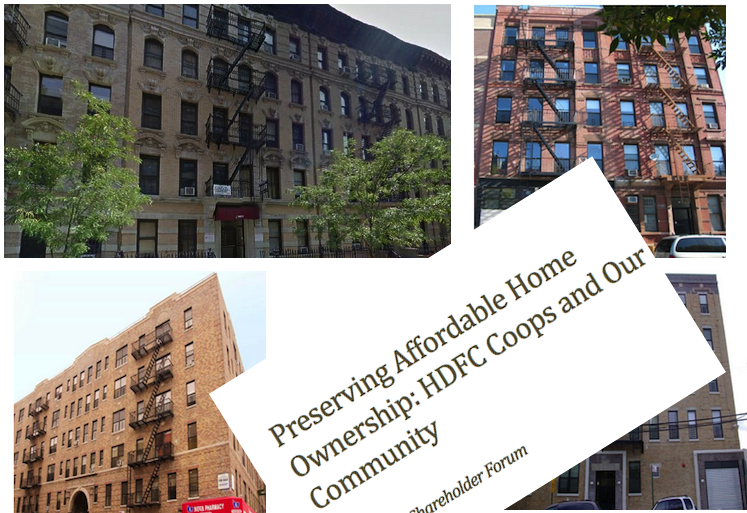
UHAB, HPD
The negative reaction to the city's proposed new regulatory agreement is understandable. But so is the case for moving to preserve a vital affordable-housing resource.
For decades, Housing Development Fund Corporation (HDFC) co-ops have been providing affordable homeownership opportunities for low-income families across New York City. These income-restricted cooperatives now comprise some 30,000 apartments in more than 1,300 formerly abandoned or distressed multi-family buildings. Eligible for special tax abatements and government grants, HDFC co-ops have helped increase civic engagement among residents, enable greater educational achievement for children and bring more financial stability to families. This has improved not only troubled neighborhoods but the city around them. Yet, the future of this housing stock is in jeopardy.
Apartments in some HDFCs are beginning to sell for market-like prices, far beyond what lower-income people can afford, and other buildings are experiencing problems with their leadership or finances. To tackle these challenges, the city has proposed a deeper property tax break for HDFC co-ops in exchange for increased regulation. The new regulatory agreement, however, is extremely controversial among both HDFC shareholders and the organizations that serve them.
With many reactions fueled by inaccurate information, the reasons for the uproar vary. It’s worthwhile to take a look at some of the issues involved in HDFCs retaining or regaining their financial and physical stability while maintaining their affordability for the low-income New Yorkers they are legally required to serve.
Residents of hundreds of HDFC co-ops across the city would be affected by the new regulatory agreement, but some shareholders have felt left out of the process of creating it. Others are resentful that, after paying little attention to this housing for decades, the city is now offering a punitive-seeming proposal instead of gratitude and support to residents for stabilizing these once-distressed buildings and neighborhoods. Some believe that price caps on apartment re-sales are unfair and that some of the city’s requirements would be overbearing or paternalistic. Other shareholders are questioning the need to have any regulation or oversight at all.
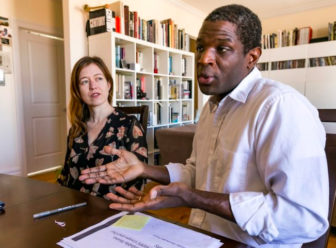
Click to read key background: 'City Pushes to Regulate Low-Income Coops Amid Some Shareholders’ Opposition'
Most affordable housing that receives government subsidies operates under a regulatory agreement to ensure that the residents, the community, and taxpayers all benefit. HDFC co-ops should be no different. Many are already under the kind of regulation that the city hopes to implement across the board, and the success rate of these cooperatives is high. Any new regulation, however, must be reasonable and respectful of the unique history of HDFCs. It must not be onerous or seem demeaning to residents, who already work so hard to run and maintain their often aging buildings.
Among the most controversial elements of the proposed new regulatory agreement is the price caps on HDFC co-op re-sales. Some shareholders ask, “Why shouldn’t I be allowed to get market value for my apartment when I move out? We stayed in this neighborhood when it got so bad that hardly anyone else wanted to live here. Now that there’s a Starbucks on the corner and a movie complex down the block, we should be rewarded with a nice profit just like other homeowners who sell.”
It is crucial to remember, though, that since these affordable co-ops are special purpose corporations incorporated under Article XI of the Private Housing Finance Law, they are legally required to provide housing to low-income people. In exchange for complying with income restrictions and other rules designed to preserve current and future affordability, HDFC co-ops have been eligible for ongoing tax breaks, grants for renovations, low-interest loans and technical assistance, all paid for by taxpayers. Allowing apartments to sell at high prices defeats the purpose of this subsidized housing.
A key point to understand about living in an HDFC co-op, as well as in other income-restricted co-ops such as Mitchell-Lamas, is that residents do not have to wait until they sell their apartments before they realize the greatest benefits. With monthly HDFC maintenance often just a fraction of the rent for nearby market-rate apartments, shareholders enjoy the value of HDFC co-ops every single day that they live in them.
Re-sale prices are a critical component of maintaining HDFC co-op affordability, so that these buildings can remain an option for future lower-income residents. More than 90 percent of HDFC co-op apartments are owned by the people who originally purchased them—for only $250. There is no question that shareholders are entitled to (and will certainly receive) a substantial return on their initial investment when they sell. It is essential, however, that whatever profit people make as they move out does not compromise the ability of the next generation of low-income New Yorkers to afford these apartments. Fortunately, as the city’s Independent Budget Office report on HDFC co-op re-sales indicates, most units have sold at affordable prices. But increasing numbers of these apartments have gone for market-like prices.
Running a healthy co-op while maintaining low operating costs takes a lot of effort. Residents of most HDFCs have done an impressive job managing and governing democratically. As an incentive to continue preserving the current and future affordability of these buildings, through re-sale price caps and other means, shareholders should receive a new full property tax exemption, along with a clearer set of expectations for keeping their HDFCs on solid ground.
Monitoring has proven to be a useful and proactive way for affordable housing nonprofits to work with HDFCs to help their boards and other shareholders devise and maintain sound fiscal and leadership strategies, whether they need to sustain successful co-ops or to turn their buildings around. Of the 150 buildings with regulatory agreements that the Urban Homesteading Assistance Board (UHAB) monitors, less than 1 percent have serious financial or organizational problems while 27 percent of unmonitored and unregulated HDFC co-ops are in financial distress. The deeper property tax cut that buildings would receive for signing the new agreement is intended to cover the cost of monitoring.
Yet the city’s proposed new requirement that every building hire a monitor is another vigorously debated issue. To address shareholder concerns, the city could consider funding the monitoring directly, so that the low-income residents of these buildings would not have to pay for it themselves. The city could also allow buildings more flexibility in selecting their monitors.
For the HDFCs that have been performing well, reporting their success to the city should not be a problem. This process should be as hassle-free as possible, perhaps including a provision for HDFCs themselves to report their financial and organizational information each year. But without some form of reporting, it is difficult to determine whether a co-op is healthy or at risk of falling into financial distress.
Clearly, there are HDFCs that do face financial and organizational trouble: Buildings that can’t keep up with repairs, where property tax and water bills are mounting, the leadership does not hold regular board meetings or generate financial reports, a handful of people have been running the HDFC for many years without democratic elections—buldings that are governed by shareholders who allow non-transparent apartment re-sales or let relatives illegally sublet their apartments through Airbnb. For these co-ops, monitors are effective in promoting solutions that help them back on the right track.
Preserving strong HDFCs benefits people of all incomes, because stable housing means an improved city for everyone. The continued loss of this housing threatens the future of all affordable co-ops in New York City, including the nearly 30,000 HDFC co-op apartments and more than 61,000 units of Mitchell-Lama co-ops. The residents of one Brooklyn Mitchell-Lama co-op recently voted to reject privatization and high re-sale prices. As a shareholder put it, “Why would you not want to leave somebody the blessing that you were given?”
Andrew Reicher is the executive director of the Urban Homesteading Assistance Board



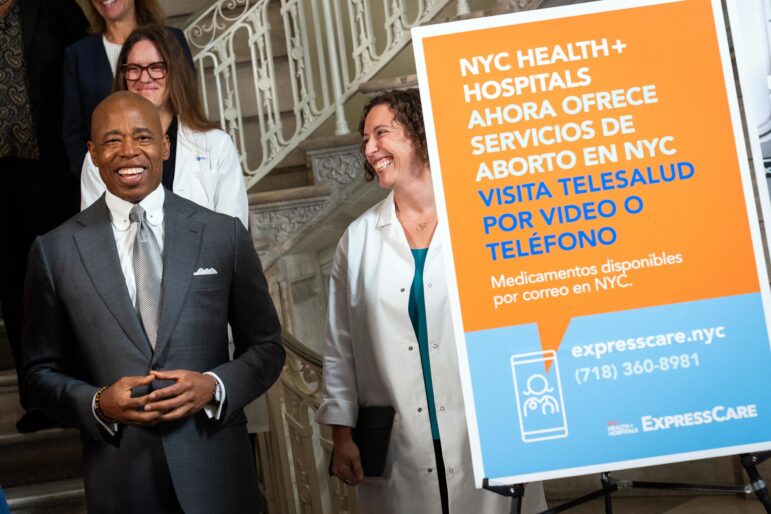
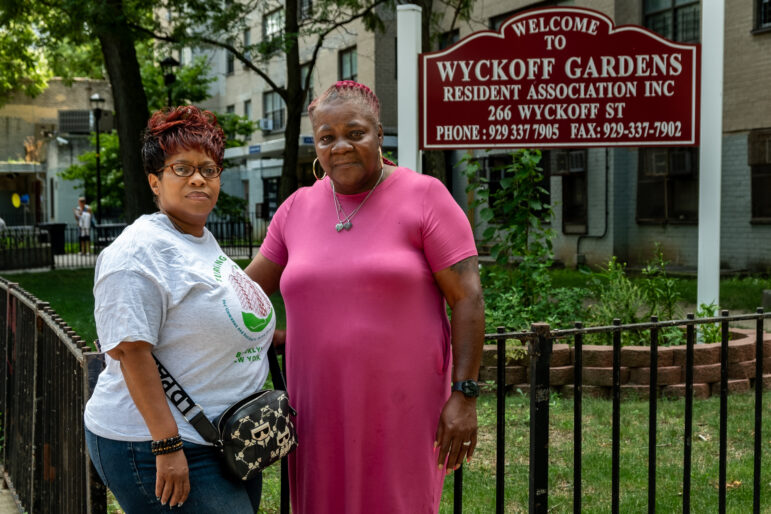
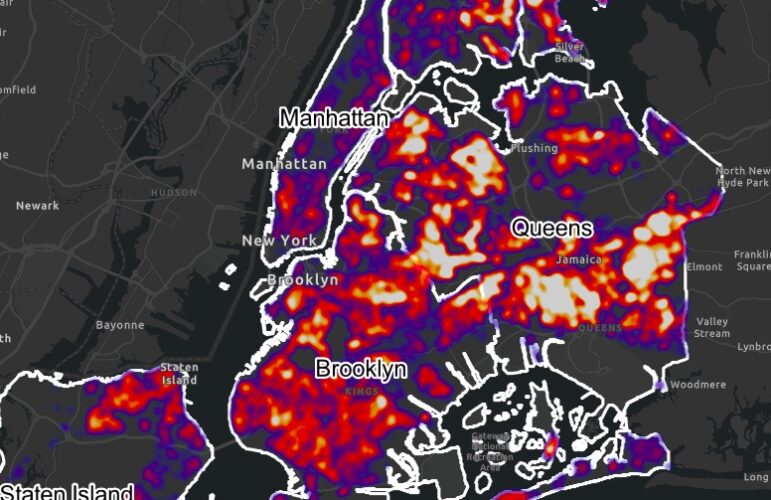
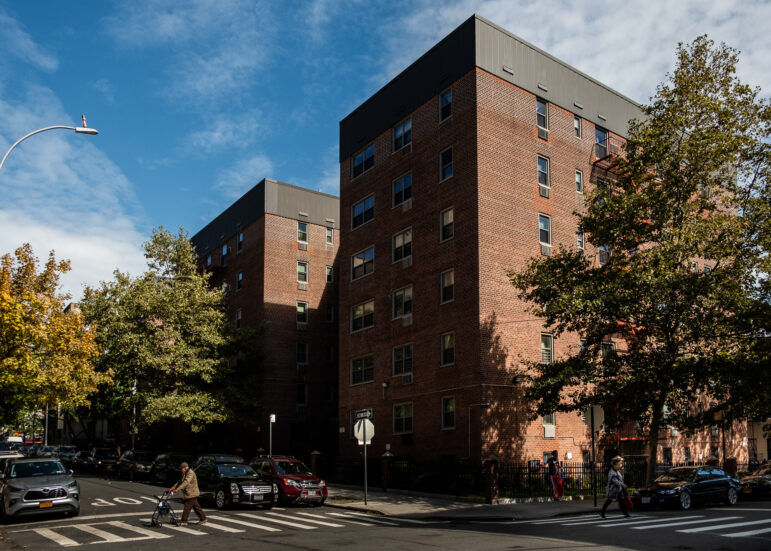


16 thoughts on “CityViews: The Case for New Regs for the City’s Affordable Co-ops”
They should stop the process where trust fund kids have their parents turn these units into mini illegal hotels or allow them to be turned into boarding houses.
That said, the lawbiding, decent shareholders who are 99% percent of those effected shouldn’t be penalized. Monitors and managers culled from the real estate industry won’t fix this problem. The city should inspect these buildings from time to time to find out if the tenants have been approved and that the boards abide by the rules. The HDFC laws say nothing about “roommates” or boarders and this is the only thing that needs to be fixed. HPD is using this to try to boost DeBlasio’s numbers for low income housing while the real estate sharks are salivating over these units.
Don’t punish those of us who are doing the right thing.
UHAB seems to have morphed over the years from an organization that helps HDFCs to an organization that profits from HDFCs. When we asked UHAB for help obtaining an 8-A loan from the city. They offered to prepare the documentation for a fee of $40,000. We did it ourselves in two days. Repeated requests for assistance with co-op governance issues and with energy-saving measures were met with either no action, or free introductory sessions that urged us to sign up with expensive consultants.
Apparently, UHAB recently lost its HPD contract for reasons that have not been made clear. No wonder it is seeking a new mission.
I could not have said it better! Yes! They lost their HPD contract and nobody is talking about the reason.
Andrew Reicher’s article has a lot of misinformation and distortions. He can reach out to the HDFC Steering committee to get some facts to comment on. Sylvia Tyler
UHAB is not a friend of HDFCs nor affordable housing. They are in bed with the DeBlasio administration and talk the talk, but can’t walk the walk.
Others have already pointed out the conflict of interest issues, but anyone who thinks that UHAB has the capacity to competently monitor the proposed program should read this report: http://www.palanteharlem.org/BrokenPromisesTIL.pdf
Fallacies in City Limits article
http://citylimits.org/2017/03/21/cityviews-the-case-for-new-regs-for-the-citys-affordable-co-ops/
This article wrote by Andrew Reicher the executive director of the UHAB Urban Homesteading Assistance Board and a part that have conflict of interest with this agreement, (if the agreement is singed UHAB will sign also contracts as monitors) have so many fallacies:
I. False For decades, Housing Development Fund Corporation (HDFC) co-ops have been providing affordable homeownership opportunities for low-income families across New York City.
Truth These buildings already existed with different incomes
They were abandoned by landlords, banks, and the City, which sold them to tenants who represented a range of incomes and classes (middle, lower-middle, low) and who, as owners, saved their buildings to sweat equity and sound management. Income restrictions apply to new buyers in HDFCs.
“HDFCs are affordable housing, not low-income housing: Many or most HDFCs have income restrictions at 120% to 165% AMI ($108,720 to $149,490/year-family of four), which is moderate- to middle-income affordable housing. HDFCs are formerly abandoned buildings that often still need expensive repairs that must be paid for by the shareholders. Price caps & lower AMI levels threaten financial viability.” (John McBride)
II. False “Eligible for special tax abatements and government grants”…
Truth These buildings already have a tax exemption they are not elegible.
III. False “To tackle these challenges, the city has proposed a deeper property tax break for
Truth These buildings already have a tax exemption. HPD by proposing this agreement is Breaking a contract with HDFCs
The City has a contract with HDFCs including — the DAMP tax exemption — which lasts until 2029. Thousands of HDFC shareholders bought their property knowing this exemption was in place until 2029. The Mayor and HPD wish to break that contract and offer one that has a slew of stunningly punitive regulations attached, including unheard-of sales caps. It’s as if HPD said, “First we break the contract, then we break their backs!”
IV. False “The future of this housing stock is in jeopardy”
Truth HPD There is no a problem that needs to be solved, except for distressed HDFCs this is a fake problem dreamed up by HPD. We can’t buy into their loaded language. That’s why we should NOT use the word “solution.”
V. False ” Apartments in some HDFCs are beginning to sell for market-like prices, ”
Truth ” HDFC sales prices are affordable: HDFC apartments not only sell for less than market rate, they typically sell for less than the maximum price that buyers within allowable AMI levels could afford without additional assets. In 2011-2015, 32% of HDFC apts. sold at less than $100,000 & 75% sold for less than $326,000, with a median price of $270,000 vs. market-rate $760,000 (NYC) and $1,209,500 Manhattan (John McBride)”
VI False “The future of this housing stock is in jeopardy”
Truth HPD There is no a problem that needs to be solved, except for distressed HDFCs this is a fake problem dreamed up by HPD. We can’t buy into their loaded language. That’s why we should NOT use the word “solution.”
VII. False “opportunities for low-income families across New York City”
Truth Affordability for life is the HDFC goal, not low sales prices
Indeed, HDFCs count on high flip-tax income from rising sales prices; this income pays for capital improvements and upkeep, and holds maintenance low for everyone.
VIII. False ” some shareholders have felt left out of the process of creating it”
Truth Shareholders (with the exception of those in agreement with UHAB ideology) have been left out of the agreement. The agreement was discussed not with shareholders but with Not-For-Profits who have a (thir party interest) in the agreement.
Only submissive shareholders (as the one in the picture) who were willing to follow the agenda of UHAB were allow to take part of the proposal
The agreement was drafted by J.C. who works at UHAB and discussed by the (The Task Force). The Task Force on HDFC’s membership is primarily made up of organizations that receive funds to develop, manage and service affordable housing in New York City, along with representation from the offices of some elected officials. As of September 2016, such organizations include ANHD, Brooklyn Law School Corporate & Real Estate Clinic, Brooklyn Legal Services Corp A, Cooper Square Committee, Council Member Torres’ Office, Goldstein Hall PLLC, The Housing Partnership, The Legal Aid Society (Harlem Community Law Office), Manhattan Borough President’s Office, RAIN Community Land Trust, Urban Homesteading Assistance Board (UHAB), and the Urban Justice Center.)
IX. False ” Many (HDFC) are already under the kind of regulation that the city hopes to implement across the board, and the success rate of these cooperatives is high”
Truth The only buildings that have regulatory agreements with the city are those who have financial or construction problems and need a loan, these are not doing well, because different from the rest were not self sufficient. 207 Coops that received loans from the City have additional regulatory agreements and oversight by the City.
1,048 Coops in HPD’s Portfolio with a total of ~30,000 apartments
A great majority (~75%) in good financial health with no oversight, nor assistance from the City
A minority (~25%) in financial distress (defined by The City criteria of having a debt over $3,000 per unit)
X. False “Most affordable housing that receives government subsidies operates under a regulatory agreement to ensure that the residents, the community, and taxpayers all benefit. ”
Truth Regulatory agreement are proposed only in exchange for goods, but there is no benefit offered in this agreement
The government grants give money and in exchange put regulation on you. And that there are no precedents for signing a regulation (giving you nothing) just to keep tax exemptions. In this case, the government takes something away from you and you have to sign a regulation just to get it back. There is something forceful about having to sign an agreement to keep what one has. This is an inversion of procedure: taking the exemption away is a way to force into regulation.
This agreement is written from a negative perspective, starts by taking something away not by giving something. Preserving implies time and care, and this agreement is being rushed into place. The frame of the agreement is forceful: the threat of deleting the existing tax exemption (valid until 2029) will force into regulation: sign or sale. The agreement is a form of “moving”.
XI. False ” Among the most controversial elements of the proposed new regulatory agreement is the price caps on HDFC co-op re-sales. Some shareholders ask, “Why shouldn’t I be allowed to get market value for my apartment when I move out?
Truth The most controversial element of the proposed new regulatory agreement is Autonomy, as it is now buildings have the choice depending of their situation to cap or not cap prices. We are not against cap prices we are against the city putting cap flat prices on all of us.
HDFCs, have the choice to regulate the following:
-To cap sale prices or not to cap sale prices
-Flip tax percentage
-To lower an AMI that can fluctuate under a 165% limit
In our by-laws there is no mandatory:
-Sale Price
-Assets restrictions
-Primary residency is 183 days per year as in federal laws and rent-stabilized apartments. Primary residency is 2 years every 4 as in rent-stabilized apartments
XII False Monitoring has proven to be a useful and proactive way for affordable housing nonprofits to work with HDFCs to help their boards and other shareholders… while 27 percent of unmonitored and unregulated HDFC co-ops are in financial distress.
Truth The UHAB has applied to be the monitor and get paid. The whole existence of UHAB is dependent of having monitors. The buildings that have monitors now are those in distress and ask a loan to the city with came with a monitor. There is no proof that monitored buildings functioned better. I have been into many UHAB meetings where shareholder complains the monitors do nothing. And how can they no enforcement or oversight capacity. The monitors now don´t have the right to approve sales. But the monitors in the new proposed regulatory agreement have capacity to approve sale, same name two different functions.
XIII False HPD is Helping HDFCs
Truth HPD is Punishing HDFCs
HPD’s proposal will not help distressed buildings or improve everyday governance. This proposal interferes with privacy, creates bureaucracy, and fiscally punishes successful HDFCs, yet doesn’t address gaps in existing regulations and offers no tools to help to resolve problems in buildings that struggle. Our
owner’s rights are revoked by this proposal, leaving us only with the rights of tenants.
XIV. False ” Preserving Affordable Home Ownership”
Truth HPD is Moving Affordability
HPD’s strategy is not about “preserving” but about “moving” — moving us out and bringing others in. Maintenance will go up and force lower-income shareholders to leave the city, thus making their apart-ments available. These new units will be counted as new “affordable housing units.” (The “units” will change hands, no new units will be built.) Elections are coming up and Mayor de Blasio’s administration, so far unable to fulfill its promise of 200,000 affordable housing units, will add ours to his count.
THANK YOU SO MUCH FOR THIS! It articulates exactly what is going on.
I didn’t read all of your points but some of your information is off and wrong. The “Damp Tax” is not an exemption but an abatement meaning the building still pays some percentage of real estate taxes. The buildings with regulatory agreements get a “tax exemption” which means they pay no property tax for a certain period.
Also yes some HDFC’s have sold above market rate even upwards of 800,000 which is a problem when the sole purpose of HDFC’s under the PFH Art 11 is to provide affordable housing to low to moderate income households.
Bottom line is the city isn’t mandated to provide tax abatement’s exemptions in a building where they are selling for market rate. The signing of the Regulatory Agreement will come with a tax exemption that will save the building alot of money on real estate taxes. Its like the Mitchell Lamas who have voted to stay affordable and also reap the tax subsisides keeping the maintenance prices low. Do you know how much usually is the highest selling price? around 35,000. Even with this new Reg Agreement ppl who paid %250 can sell well above that amount.
There is NOW a recent court decision from the Appellate division first department that decided that original HDFC shareholders have to income qualify (we were not required to as insider tenants when we purchased our shares) when a co-shareholder dies (both names on lease and stock certificate), in order to have the remaining shares transferred to the existing shareholder (even with a probated Will). If you don’t currently income “qualify” you can now be forced to sell and basically be displaced from your home.
This decision makes no sense and impacts all shareholders through out the city, as now Board’s and the city can now potentially use this decision to get rid of shareholders already in possession of their apts for years as an existing shareholder.
shareholders can now be forced from their homes and neighborhoods that they have occupied and lived in for 20, 30 and 40 years.
We can thank Deblasio for his fight against HDFCS and the attorney who blindly insisted on this by opening up a can of worms in court. As well as a court with a political agenda. This is a matter of public interest.
HPD has no idea what they doing on a daily basis. Many of the issues of these buildings stem from mismanagement by managing agents. When you ask HPD how they decide on their managing agents they refuse to tell you. Many of the coops are riddled with construction defects do to the mismanagement by HPD and their preferred vendors.
In addition, you have some very corrupt boards and even worse “bldg attorneys” acting as an agent of the board. To the extent, that they are threatening existing and legitimate shareholders with litigation if they don’t produce current tax returns. This is against all the governing documents and bylaws, and a scam to steal apts from shareholders. The bldg attorney is filing frivolous court motions for tax returns, this outrageous and unethical. Help!
our building is an HDFC and currently unregulated and unmonitored we have a family that is aware that no one can help us so they took complete control of our building making it there own personal building and threatens anyone who challenges them. we have no meetings no elections and no one is willing to help us , Ive wrote to the Mayor, Bronx Boro PResident, Gov Como and HPD and were still in the same position giving our money to this one shareholder in the building as if it was there own personal business I hope someone in NYC reads this and tell me who could I reach out to for help.Thank you so much
I would love to give you a story with plenty of hard evidence of how corrupt the HDFC program has become. People are using it as their own personal piggy banks, and or investment properties, they are not being used for the original intent for low and middle income people.
Throughout the years many HDFC shareholders have complained to HPD about the corruption and HPD willfully is ignoring them, letting them fall into financial distress, and some falling back to the hands of the city.
I am an HDFC co-op owner. Others are in the process of suing their boards. One family has up to 8 units, which is prohibited by the HDFC program. Some shareholders own up to five units, again with is prohibited.
The sad part is many may lose their investments, their homes, and I feel I have to follow the city’s rules, yet when things get corrupt, HPD and the city refused to help.
In the last number of years, many HDFC’s have been lost and taken over by private investors, because of the same type of corruption that is going on in my building. People own more than one unit or they have been subletting their units for decades at market rates, pricing out the low and middle income. The whole reason for the program in the first place.
Mayer De Blasio is preposing a new regulatory agreement that most HDFC co-op owners oppose and have been actively rejecting.
Number one they say that they are creating new affordable housing which is clearly not the case, there is nothing new being created.
Secondly, and most importantly they are ignoring the many HDFC share holders with multiple apartments that sublet at market rates. This defeats the whole idea of the program.
Many people including HPD employees own multiple units that they use as investment properties, they rent them at market rates.
This may be the reason that they want to control the monitoring system that they are preposing in the new regulatory agreement.
I would like to point out that in this new preposed regulatory agreement, NEVER have they addressed the issue of owning multiple units. What would be the penalty for owning multiple units? Would they be forced to sell, and make a profit, after profiting from the buildings for so many years. Will they be forced to give the profits to the building. What happens to HPD employees and former employees exploiting the program?
This is the main problem of corruption is most distress HDFC’s, yet the one that is being blatantly ignored.
This “one-size-fits-all” regulatory agreement for HDFC co-ops does nothing to address the main reason for distressed buildings. The reason is simple its corruption. The city Never included seasoned shareholders with distressed buildings or the successful buildings with healthy reserve funds, on how to improve the program and sustain affordable housing.
As a result of HPD ignoring these crimes, many shareholders live in fear, and suffer with daily harassment, because of such corruption, being low income residents they have no where to go.
HPD says they created the new regulatory agreement to help save affordable housing, yet because they refuse to help shareholders instead created a “one-size-fits-all” regulatory agreement witch will only perpetuate the problem. Not one building heathy or distressed in interested in the new preposed agreement.
If they would enforce the existing rules, buildings would recoup the misused units renting them to low and middle income families. The income would help support and maintain the buildings and taxes. Not the greed of the shareholders who individually profit off of multiple units.
Enforcing the existing rules, would really create and sustain affordable housing.
I understand theres corruption but what happens to a new buyer who just bought HDCF for 400k?
Are we grandfathered with old rules or will i be capped at 200k meaning i lose 200k asap?
Did you get an answer? I’d like to know